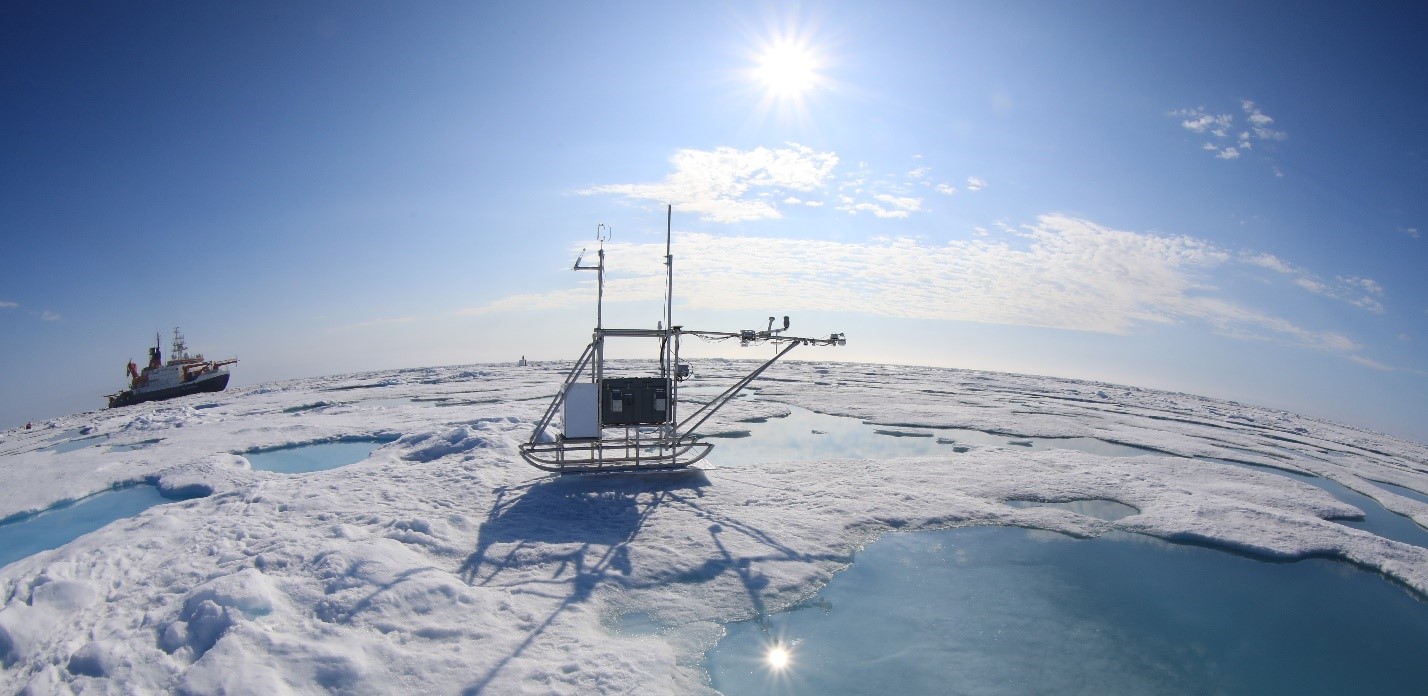Postdoctoral Research Position – University of Colorado
1 January 1970 - 1 January 1970

Background and Science Objectives: The Multidisciplinary drifting Observatory for the Study of Arctic Climate (MOSAiC, www.mosaic-expedition.org) was an international expedition to the Arctic where scientists from more than 20 nations froze a ship into the Arctic sea-ice to serve as a coupled-system observatory for a full year. Data from the expedition will be used to understand interactions among the atmosphere, ice, ocean, biogeochemistry, and ecosystem of the changing Arctic so these can be better represented by models at multiple scales. This post-doctoral research opportunity targets atmospheric links with the sea ice by examining the surface energy budget, its relation to atmospheric drivers including clouds and precipitation, and the representation of these processes by a coupled model. The key science questions to be addressed include:
-
- How does the partitioning of surface energy budget terms over sea ice vary with cloud state, atmospheric stability, season, snow depth, and sea-ice thickness?
- How can model representation of Arctic cloud and precipitation processes be optimized to simultaneously and consistently simulate observed relationships between cloud radiative effects and net precipitation?
Tools for Research: MOSAiC observational data to be used for this project includes a comprehensive suite of ground-based remote and in situ sensors (radar, lidar, radiometers, meteorology, precipitation, surface energy budget, aerosols), profiling information from radiosondes, and collaborative data products from sea ice, ocean, and satellite measurement systems. The Coupled Arctic Forecast System (CAFS), an Arctic regional coupled model, will be used as a tool for model assessment and process understanding. Applicants should expect to work with both observational and model output, as well as design targeted model simulations, to study relevant processes.
General Qualifications: Applicants should have a background in Arctic sea-ice and/or atmospheric processes, with prior experience in working with large data sets and/or using numerical models. The position requires strong teamwork and communications skills. Proficiency in appropriate programming languages is necessary (Python, Matlab, IDL, etc.). Applicants should have received their PhD degree within the past 3 years.
Position Details: This post-doctoral position is offered via the University of Colorado’s Cooperative Institute for Research in Environmental Sciences (CIRES), and is located at the NOAA Physical Sciences Laboratory in Boulder, Colorado. The position offers strong links to numerous Arctic scientists affiliated with CIRES and NOAA in Boulder, as well as a direct association with the MOSAiC consortium of national and international scientists. Funding support is provided by a grant from the U.S. Department of Energy Atmospheric System Research (ASR) Program. Starting salary will be based on typical post-doctoral positions at the University of Colorado and starting date is negotiable. Practical details of the position will be adapted to the evolving COVID-19 situation to ensure safe working conditions consistent with CIRES and NOAA policies.
For more information and to apply:
Contacts:
-
- Matthew Shupe, University of Colorado – CIRES/NOAA, shupe@noaa.gov
- Amy Solomon, University of Colorado – CIRES/NOAA, amy.solomon@noaa.gov

